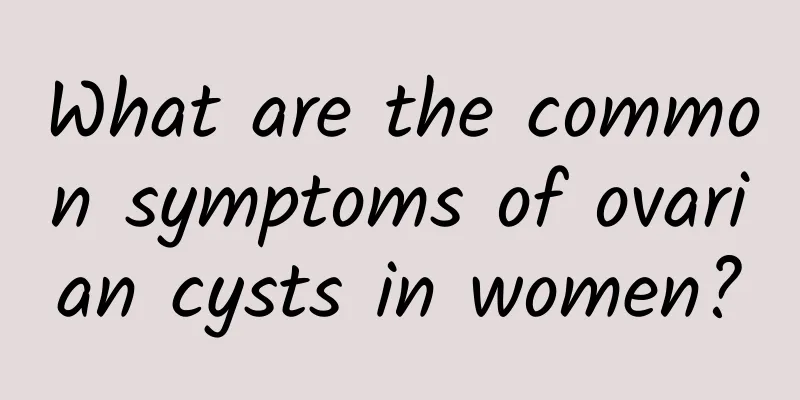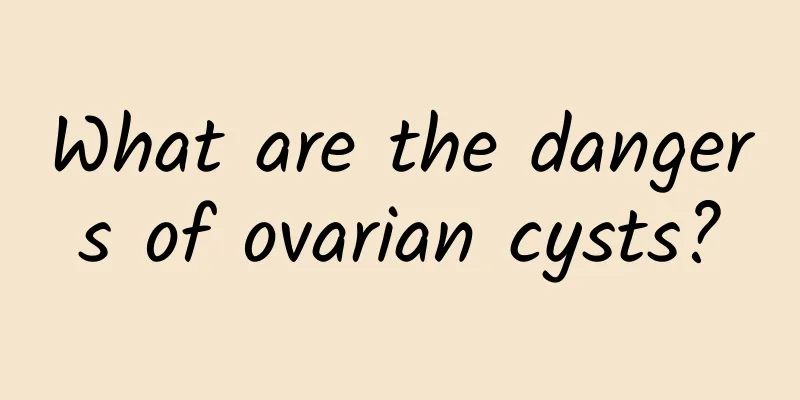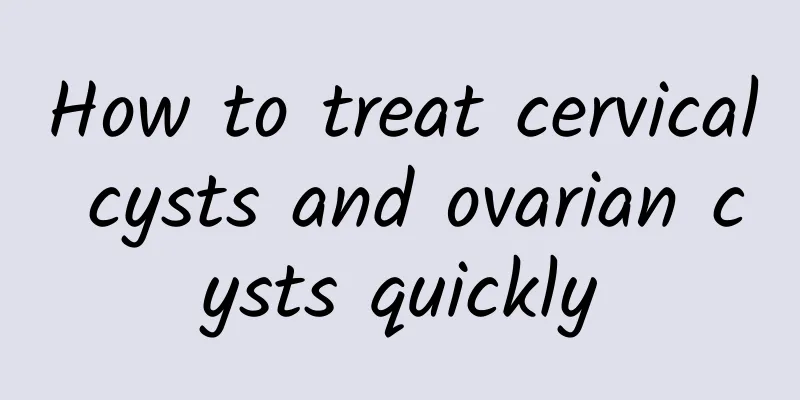What are the common symptoms of ovarian cysts in women?

|
What are the common symptoms of ovarian cysts in women? Ovarian cysts are a disease with a high incidence rate among women. It has a great impact on women's physical health and normal fertility, so we must actively seek treatment after the onset of the disease. Let us take a look at the common symptoms of ovarian cysts, hoping to help you detect abnormalities as soon as possible. What are the common symptoms of female ovarian cysts? Experts say that women mainly have the following symptoms after the disease: 1. Discomfort in the lower abdomen Due to the weight of the ovarian cyst itself and the change of body position, when the ovarian cyst moves in the pelvic cavity, it pulls on the tumor pedicle and the pelvic funnel ligament, causing women to feel distended and falling in the lower abdomen or iliac fossa. 2. Increased abdominal circumference and a tumor in the abdomen Patients will notice that their abdomen is getting thicker when they find that their clothes or belts are too tight, or when they accidentally press their abdomen in the morning, they may find a mass in their abdomen. 3. Menstrual disorders Ovarian cysts can destroy the normal function of women's ovaries and cause changes in the distribution of pelvic blood vessels, which can cause women to experience excessive menstrual flow and irregular menstrual cycles. Some patients may also experience abnormal bleeding before and after menstruation. What kind of medicine is better for treating ovarian cysts when symptoms are found? Common medicines include: 1. Xiaojie'an Capsule: It can activate blood circulation and dissipate blood stasis, soften and disperse nodules. It is used for breast lumps caused by qi stagnation and blood stasis, breast lobular hyperplasia, ovarian cysts, and uterine fibroids with the above symptoms. 2. Hongjin Xiaojie Concentrated Pills: Soothes the liver and regulates qi, softens and disperses nodules, activates blood circulation and removes blood stasis, reduces swelling and relieves pain. Used for breast lobular hyperplasia, uterine fibroids, and ovarian cysts caused by qi stagnation and blood stasis. 3. Guizhi Fuling Capsule: It is used to treat amenorrhea, dysmenorrhea, postpartum lochia, uterine fibroids, chronic pelvic inflammatory mass, dysmenorrhea, endometriosis, and ovarian cysts caused by blood stasis blocking the collaterals in women with the above symptoms. |
<<: How to treat acute pelvic inflammatory disease
>>: What are the precautions for ovarian cyst tumors?
Recommend
How to treat acute cervicitis completely
In the clinical treatment of acute cervicitis, ta...
Can pelvic peritonitis in women be cured?
Pelvic peritonitis is a type of pelvic inflammati...
What are the common causes of vulvar leukoplakia?
What are the common causes of vulvar leukoplakia?...
Is it serious to find ovarian cysts during ovulation?
If you find an ovarian cyst during the ovulation ...
It is not easy to cure congenital absence of vagina
You should know that for a woman, the symptom of ...
What are the clinical manifestations of pelvic inflammatory disease?
What are the clinical manifestations of pelvic in...
Patients with ovarian cysts should undergo timely examination
In recent years, the incidence of ovarian cysts i...
Explain the common manifestations of the hazards of painless abortion
In our lives, there are more and more women who a...
Which department should I go to for adenomyosis?
Patients with adenomyosis and qi stagnation and b...
What should patients with cervical precancerous lesions eat for three meals a day?
Cervical precancerous lesions are one of the comm...
Some introduction to common knowledge of painless abortion
What is the common sense about painless abortion?...
Will girls have toothache when their period is coming? Yes, it can cause
Women's menstruation can cause tooth acid. Be...
Women should pay attention to the causes of pelvic inflammatory disease in a timely manner
In recent years, with the continuous increase in ...
How much do you know about the causes of pelvic inflammatory disease?
What are the causes of pelvic inflammatory diseas...
The amount of vaginal discharge suddenly increased a few days ago and my vulva became itchy. What should I do?
The amount of vaginal discharge suddenly increase...









